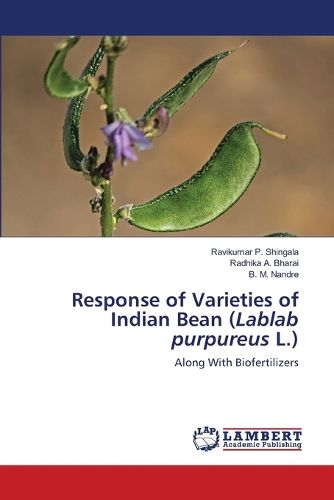Readings Newsletter
Become a Readings Member to make your shopping experience even easier.
Sign in or sign up for free!
You’re not far away from qualifying for FREE standard shipping within Australia
You’ve qualified for FREE standard shipping within Australia
The cart is loading…






Indian bean (Lablab purpureus L.) is a sweet, bushy semi-erect herb belongs to family Fabaceae with 2n = 22 chromosomes. It is commonly known as Field bean, Hyacinth bean, Dolichos bean, Egyptian bean, Bonavist bean, Sem etc. while locally known as 'Papadi'. It is predominantly a self-pollinated crop. Biofertilizers play an important role in increasing availability of nitrogen and phosphorus. They increase the biological fixation of atmospheric nitrogen and enhance phosphorus availability to the crop. The seeds treated with bacterial culture of Rhizobium increase nodulation and influence yield as well as economize the input cost of fertilizer to some extent. Evaluation of the role of biofertilizers including Rhizobium and PSB to harness their effect in enhancing crop yields will be a challenging task.
$9.00 standard shipping within Australia
FREE standard shipping within Australia for orders over $100.00
Express & International shipping calculated at checkout
Indian bean (Lablab purpureus L.) is a sweet, bushy semi-erect herb belongs to family Fabaceae with 2n = 22 chromosomes. It is commonly known as Field bean, Hyacinth bean, Dolichos bean, Egyptian bean, Bonavist bean, Sem etc. while locally known as 'Papadi'. It is predominantly a self-pollinated crop. Biofertilizers play an important role in increasing availability of nitrogen and phosphorus. They increase the biological fixation of atmospheric nitrogen and enhance phosphorus availability to the crop. The seeds treated with bacterial culture of Rhizobium increase nodulation and influence yield as well as economize the input cost of fertilizer to some extent. Evaluation of the role of biofertilizers including Rhizobium and PSB to harness their effect in enhancing crop yields will be a challenging task.